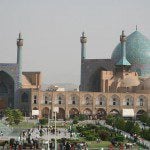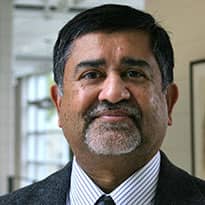At the end of his presentation, Ipson asked the audience what they felt were the answers to reducing conflict and hate. There were the usual suggestions of education, interfaith dialogue, acceptance, and so on. I raised my hand. Once again, there was some uncomfortable shifting in the chairs. I was, after all, the first one in the audience to say that some people learn hate from religion, and Ipson had acknowledged that. He also found that I was the one person in the audience who knew the group, other than the Nazis, who had mandated the wearing of a piece of colored cloth to identify the "other": these were the Taliban, who in Afghanistan had mandated that Hindus wear yellow-colored clothing to identify themselves as Hindus.
:::page break:::I said that I felt one of the fundamental reasons why there is religion-fuelled conflict is because of the claims made by some members of exclusivist religions: that they are the ones who know the true God, and that it is the command of their religions for them to convert the non-Christian and the non-Muslim. "As soon as you say that my God is not good enough for me, you get my back up, and that has fuelled insanity for the past two millennia," I argued.
The couple of Jewish friends in the audience nodded their heads as well as some of my secular-Christian colleagues and students. Ipson concurred with me.
Two days later the Presbyterian minister, who was in the audience, spoke to me. He argued that I could not falsify the claim that "Jesus was the only son of God," revealing to me, again, the power of well-circulated fallacies. I pointed out to my good friend that he was doing a confused reading of the philosopher Karl Popper's thesis that only that which is falsifiable is scientifically verifiable knowledge. Because I cannot disprove that Jesus was the only son of God does not mean that Jesus is the only son of God, I told my friend. It simply means that your assertion cannot be either proved or disproved, and so it is not a verifiable or scientific claim.
He then argued that it was his fundamental right, under American law, as well as the Universal Declaration of Human Rights, that allowed him to spread the message of his God to others. I told him that I am all for freedom of speech, but that the freedom, if wrongly used to assert unverifiable claims, or to demean and demonize others' faiths led to conflict. Religion-influenced conflict, I said, is the biggest bane of humanity now.
I told him that it is not as if we could argue about the claims of automobile manufacturers, for example, that their cars and trucks are more reliable and provide better gas mileage than their competitors' cars and trucks. "Oh, but we can," he asserted. I asked him if economic analyses showed that Christians are healthier than Muslims or Hindus, or whether Christians earned more than Sikhs, or if Christians were more loving than Buddhists. It seemed as if he was about to mention Samuel Huntington's thesis about the "clash of civilizations" to argue that there was some kind of sociological or cultural evidence that indeed Christians were "better" than others, but we had to end our conversation. However, my friend is not the only one who believes that Christianity is directly or indirectly responsible for what we take to be the good of modern capitalism and free market economies: there are a whole host of Christians making that argument, and indirect claims to the superiority or uniqueness of their God.
:::page break:::I am a Hindu, and I believe Hindu traditions are pluralistic. I believe that they enable the individual to seek God through different means, on a variety of paths. One can choose to worship God in many ways, and have a favorite deity or many favorite deities. There are nearly twenty Sanskrit terms for the English word "god," and Western scholars who have studied Hinduism have been struck by the fact that the god that was praised in a hymn was praised as "the only one, the supreme, the greatest," and that this praise was not restricted to one god but to various gods in various hymns, indicating the belief that God can take many forms, but is one.
Hinduism has always represented both cultural and religious pluralism. The Rig Veda, the oldest extant Hindu text, is both local in its grounding and universal in its embrace of all humanity, including the whole cosmos. This old, universal view that constitutes Sanatana Dharma, did not present religion and spirituality as something unique and separate to the tribe or group. We do need to keep in mind, however, that what the sages and saints of yore provided for humanity were ways of understanding the primordial, and the lessons to make life meaningful. The lessons and practices of meditation, of discipline, and of sustenance and insight provided people with the practical and theoretical framework for daily living as well as fulfilling the human longing for salvation. This was the message that Swami Vivekananda propagated when he first arrived in the U.S. in 1893. And this was what he said when he spoke to mesmerized audiences in England in 1896:





